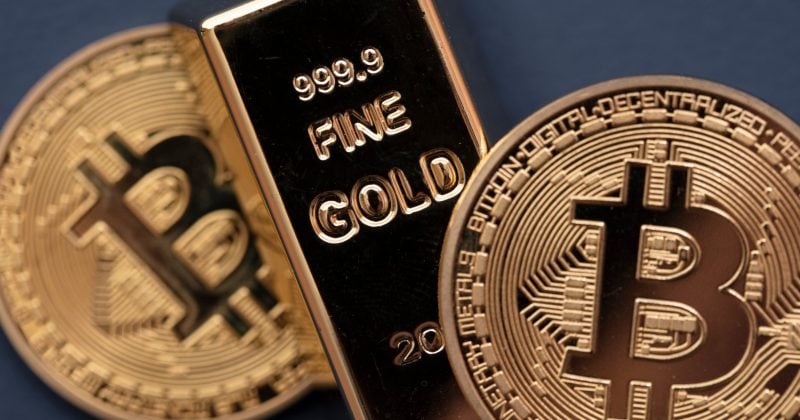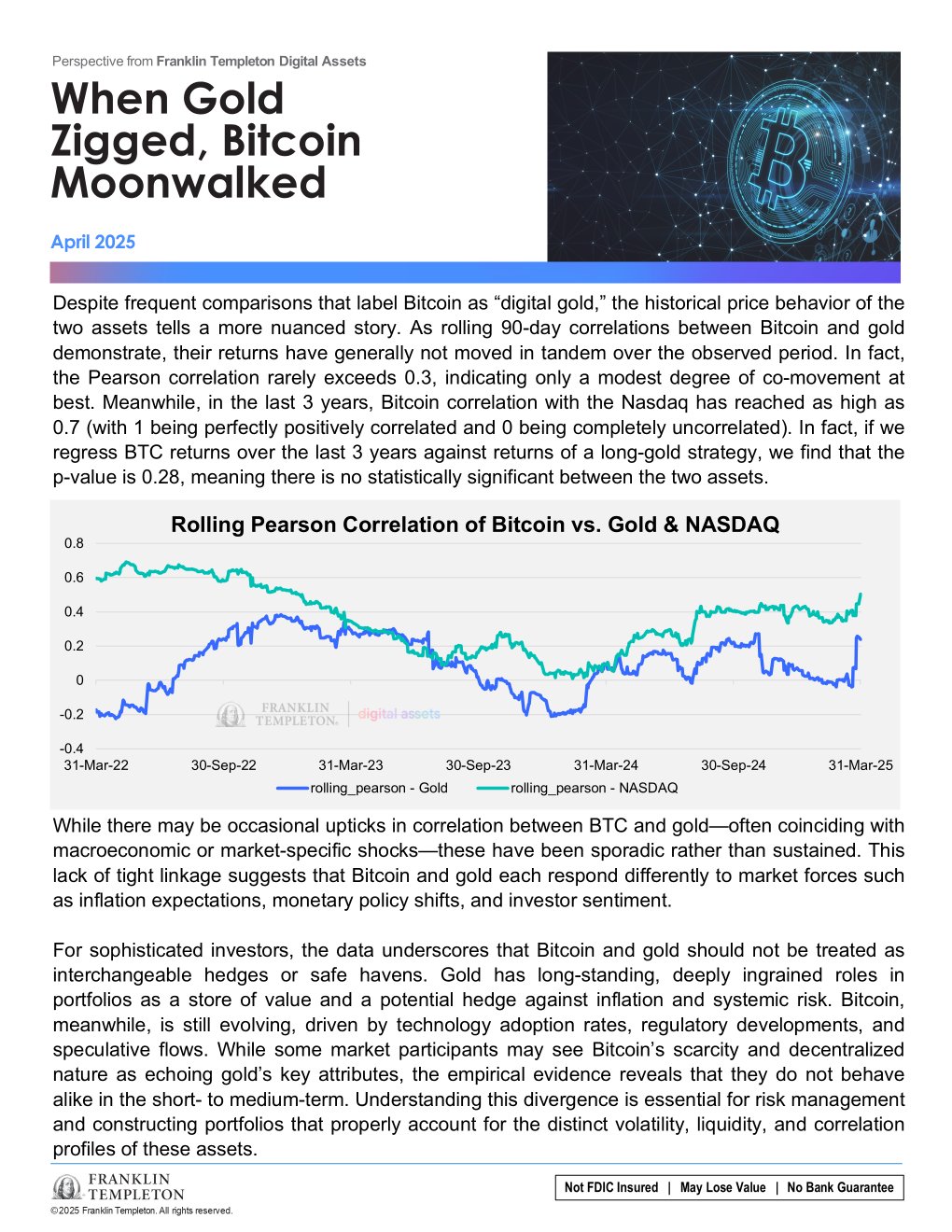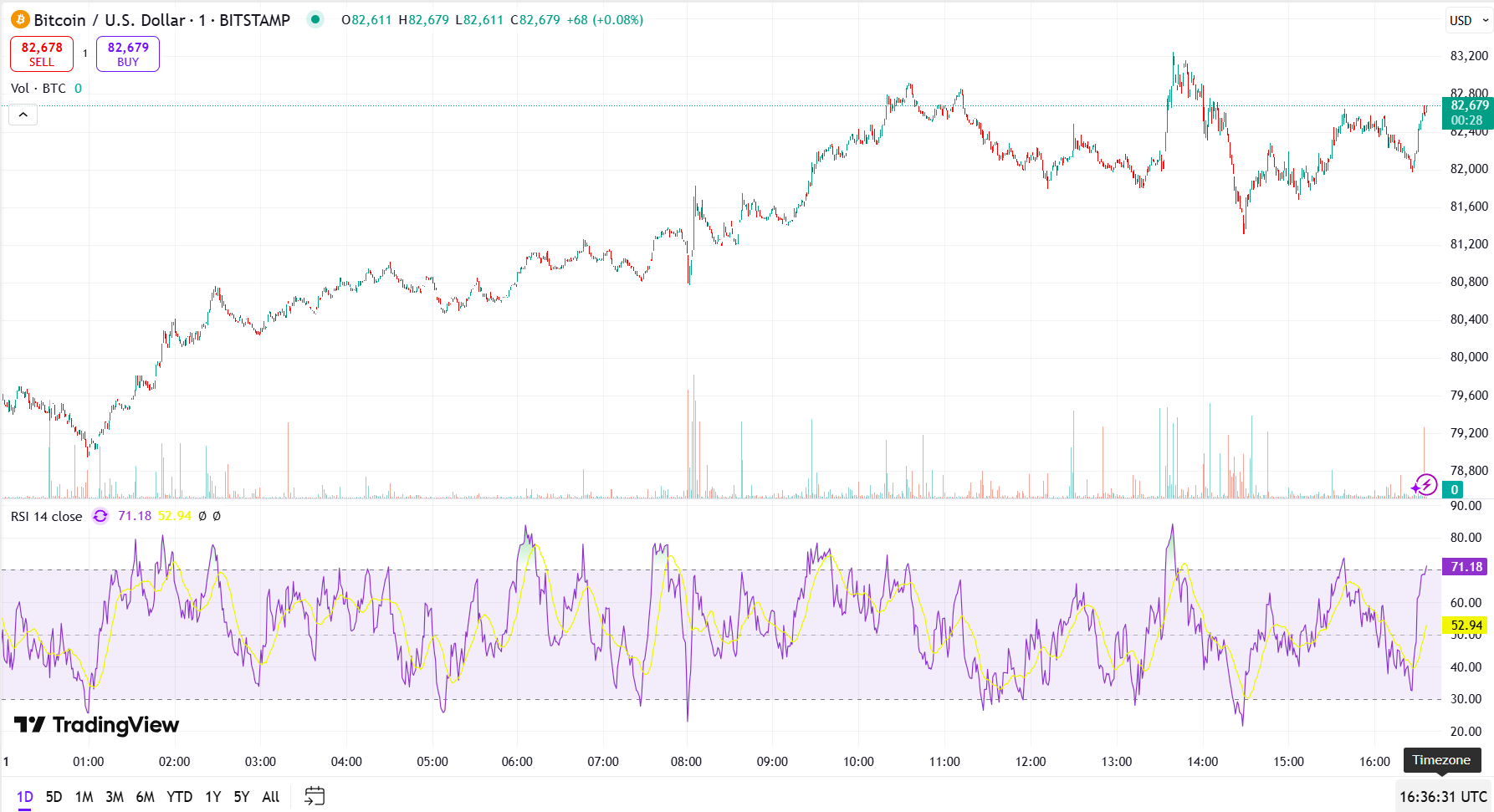
Bitcoin behaves less like gold, more like tech stocks: Franklin Templeton report
While there are times when the two assets move in the same direction due to big global events, this isn't the norm.
Bitcoin shows a stronger correlation with tech stocks than gold, according to Franklin Templeton Digital Assets’ new report, “When Gold Zigged, Bitcoin Moonwalked,” which discusses the common narrative that Bitcoin is “digital gold.”
Franklin’s digital asset team analyzed three years of data and found that the price correlation between Bitcoin and gold is weak. Research shows that Bitcoin’s correlation with gold rarely exceeds 0.3 over rolling 90-day periods, meaning the two assets generally move independently.
While they might occasionally show some co-movement, they do not consistently behave in tandem.

Instead, Bitcoin has shown a much stronger and growing correlation with the Nasdaq stock index, reaching as high as 0.7 in the past three years. This suggests Bitcoin’s behavior more closely tracks tech equities than traditional safe havens.
“In fact, if we regress BTC returns over the last 3 years against returns of a long-gold strategy, we find that the p-value is 0.28, meaning there is no statistically significant between the two assets,” the report says.
According to Franklin Templeton Digital Assets, several key factors are behind the divergence. Gold has a long-standing institutional adoption, deep liquidity, and a robust market structure developed over centuries.
Bitcoin, on the other hand, has only recently entered institutional portfolios and remains influenced by emerging dynamics such as regulatory changes, technological innovation, and speculative flows.
While there have been brief periods where Bitcoin and gold moved in tandem, usually during macroeconomic shocks, these episodes have been more the exception than the rule.
The report argues that Bitcoin’s inherently volatile and tech-driven nature limits its usefulness as a gold substitute in diversified portfolios.
“The disparity in maturity, combined with Bitcoin’s inherently more volatile and tech-driven nature, continues to limit its correlation with gold, making the case that the “digital gold” moniker may be more aspirational than reflective of actual market behavior—at least for now,” the report notes.
Gold prices soar to fresh highs as US-China trade tensions escalate
Bitcoin soared past $83,000 early Friday as US Producer Price Index (PPI) data reported lower than expected at 2.7% against a forecast of 3.3%, according to TradingView data.
The decrease in PPI, along with a drop in the US dollar index below the key 100 level, has fueled optimism among crypto traders about potential bullish market conditions for Bitcoin.
However, despite these ostensibly positive inflation numbers, major US stock indexes like the S&P 500 and Nasdaq showed minimal change, reflecting ongoing concerns about the US trade war.

Bitcoin has experienced elevated volatility over the past week, largely in response to President Trump’s sweeping tariff announcement, which rattled global equity markets.
Despite early signs of decoupling, Bitcoin continues to trade in line with tech stocks. After briefly falling below $80,000 on Thursday as the US-China trade conflict intensified, the crypto asset rebounded above $83,000 today on PPI data.
At the time of publication, Bitcoin changed hands at around $82,600, up nearly 4% in the last 24 hours.
Gold surged to new record highs on Friday as investors flocked to safe-haven assets amid rising US-China trade tensions. Spot gold climbed over 1% to $3,207 per ounce, while futures reached $3,236.
The precious metal is now up roughly 20% for the year, outperforming most major asset classes.
